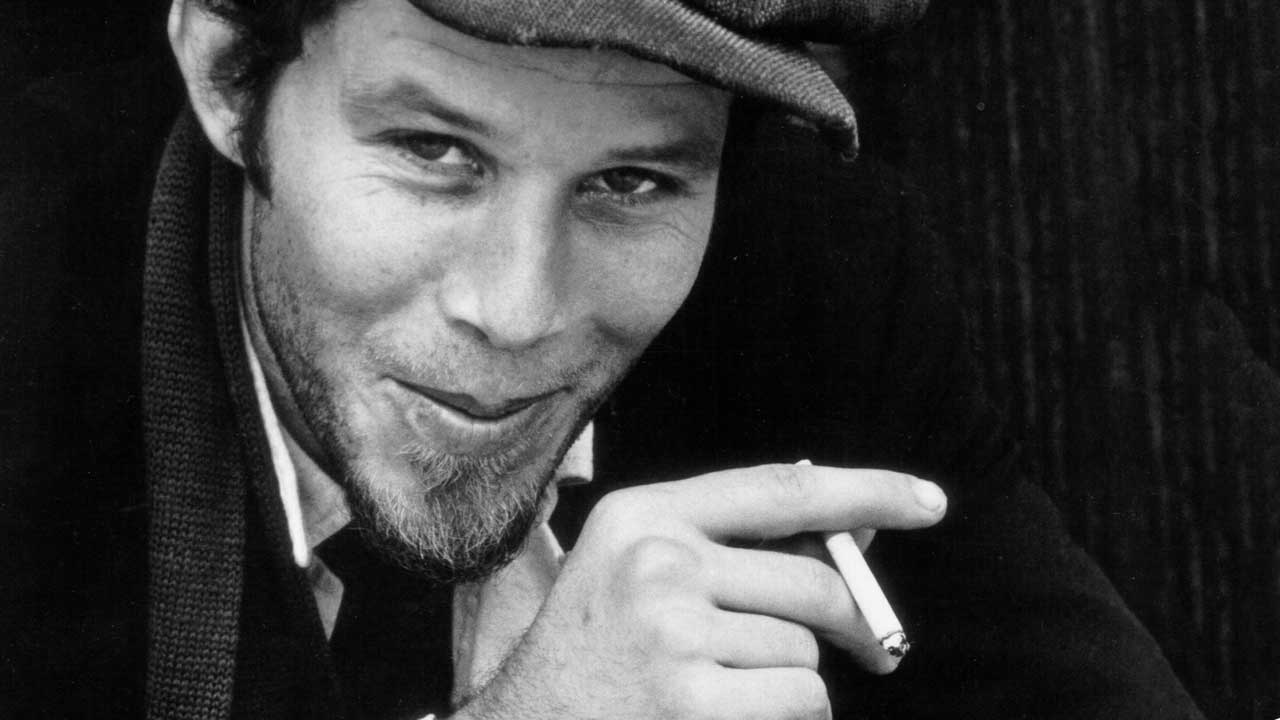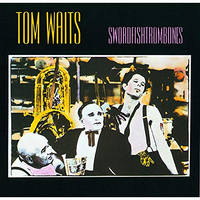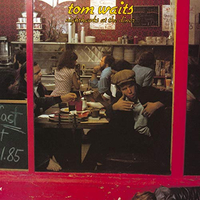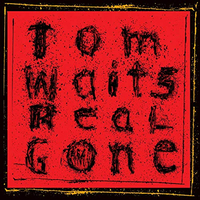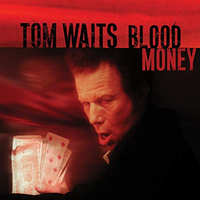Born in the back of a cab in the parking lot of Pomona hospital in California, Tom Waits has confounded expectations since he emerged from the womb in December 1947 – no doubt sporting a goatee and battered pork-pie hat even then.
Waits is an old-school Californian and ageless shaman. He cut his teeth playing piano and accordion in the strip clubs and burlesque academies of San Diego, San Francisco and Los Angeles, sharing boards with beat poets, satirists and the social misfits who informed his early songs. An underground cult hero, he was spotted at a talent night in the Troubadour Club by artist manager Herb Cohen, who added him to his roster of Asylum acts where he became something of a ‘project’ – meaning his low-key sales were offset by his evident charisma.
Waits’s career falls, or rather lurches, into three distinct categories. Early on he is a troubadour incarnate – not a singer-songwriter, although his songs were covered by Tim Buckley (Martha), the Eagles (Ol’ 55’) and Bruce Springsteen (Jersey Girl) – living in the Tropicana motel with a rented upright piano, an endless supply of rye whisky and no visible income. “I’m so broke I can’t even pay attention,” he quipped.
Having been dropped by Warner Bros, who wouldn’t release his Swordfishtrombones album, he pitched up at Island Records and phase two begins, characterised by an increasingly barking rasp, exotic arrangements and a theatrical style inspired by a series of soundtracks and film roles – The Outsiders, Rumblefish, Cotton Club, Ironweed – and his wife/muse, Irish playwright Kathleen Brennan. She has fired her husband through lean times, dark depressions and the whole artistic package.
By the end of the 90s Waits had achieved the goals of integrity married to financial independence, thanks in part to an unlikely cover of Downtown Train by Rod Stewart, which went Top 10 in America and Europe, and mostly to an effective lawsuit against the Frito-Lay crisps company who used a jokey Tom Waits soundalike for a Doritos commercial. An LA jury awarded Waits $2.45 million damages, prompting him to remark: “Now I have what I always felt I had... a distinctive voice.”
Phase three for Waits has been a marriage of the hard-boiled narrative and the simply hard-to-fathom. Increasingly ‘out there’, his maverick music embodies the phrase ‘tough love’. Those who know his ways are game for the perplexing twists. Curious newcomers are advised to dip in slowly.

...and one to avoid
You can trust Louder Our experienced team has worked for some of the biggest brands in music. From testing headphones to reviewing albums, our experts aim to create reviews you can trust. Find out more about how we review.
